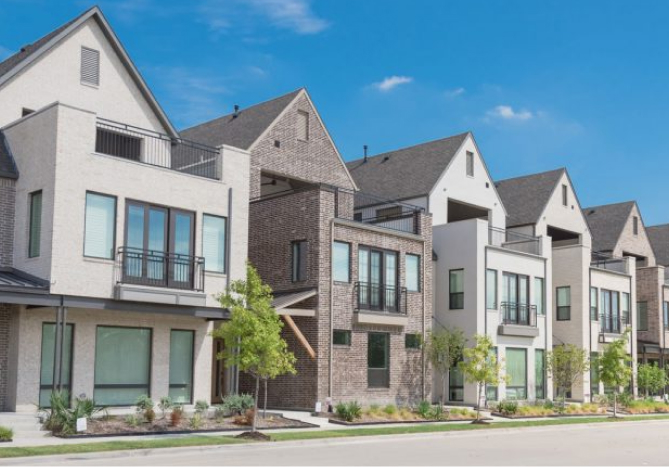An HOA plays the central role in fostering an inclusive and welcoming community for all residents. This includes understanding and fulfilling your obligations under the Fair Housing Act (FHA) when it comes to reasonable accommodation requests from residents with disabilities.
Navigating these requests effectively is not only a legal requirement but also an essential step in creating a community where everyone feels valued and respected. This comprehensive guide will equip you with the knowledge and tools necessary to confidently handle reasonable accommodation requests and ensure your HOA is in compliance with fair housing laws.
Understanding Reasonable Accommodations and the FHA
The FHA prohibits discrimination based on disability in housing. A key component of this protection is the requirement for housing providers, including HOAs, to make reasonable accommodations for individuals with disabilities.
Reasonable accommodations are changes or exceptions to rules, policies, practices, or services that may be necessary to afford a person with a disability an equal opportunity to use and1 enjoy a dwelling. These accommodations can range from waiving certain restrictions to making physical modifications to common areas.
Examples of Common Accommodation Requests
- Assistance Animals: Requests to keep an assistance animal even if the HOA has a “no pets” policy.
- Parking: Requests for a designated parking space closer to a resident’s unit due to mobility impairments.
- Modifications to Common Areas: Requests to install ramps or widen doorways in common areas to improve accessibility.
- Service Animals in Common Areas: Requests to permit a service animal in common areas where pets are generally prohibited.
The Key to Handling Requests | Interactive Process
When an HOA receives a request for reasonable accommodation, it triggers an interactive process between the HOA and the requesting resident. This process is crucial for understanding the resident’s needs, exploring potential solutions, and reaching an agreement on a reasonable accommodation.
Steps in the Interactive Process:
- Receive the Request: The request should be in writing and clearly state that the resident has a disability (without disclosing the specific nature of the disability), the requested accommodation, and how it will help the resident use and enjoy their dwelling or the common areas.
- Request Documentation (if necessary): The HOA may request documentation from a healthcare professional or other qualified individual to verify the disability and the need for the accommodation. This should be done respectfully and only when there is a legitimate need for verification.
- Engage in Dialogue: Communicate with the resident in a timely and respectful manner to discuss their needs and explore possible solutions. This may involve considering alternative accommodations or modifications to the initial request.
- Make a Decision: Based on the information gathered and the interactive dialogue, the HOA must make a decision on the request within a reasonable time frame. The decision should be based on legitimate reasons and documented in writing.
- Implement the Accommodation: If the request is approved, work with the resident to implement the accommodation in a timely and effective manner.
Navigating Challenges and Avoiding Pitfalls
Handling reasonable accommodation requests can present challenges. Here are some key considerations:
- Confidentiality: Protect the privacy of the resident and keep their disability information confidential.
- Individualized Assessment: Evaluate each request on a case-by-case basis, considering the specific needs of the resident and the unique circumstances of the community.
- Documentation: Maintain clear records of all communication, documentation, and decisions related to accommodation requests.
- Legal Counsel: When in doubt, seek legal counsel from an attorney experienced in fair housing law to ensure compliance and avoid potential legal pitfalls.
Manning and Meyers | Your Partner in Fair Housing Compliance
Fulfilling your obligations under the Fair Housing Act is not only a legal requirement but also an essential step in creating a welcoming and inclusive community for all residents. By understanding reasonable accommodations, engaging in the interactive process, and seeking legal counsel when needed, your HOA can confidently navigate these requests and foster a community where everyone feels valued and respected.
At Manning and Meyers Law Firm, we understand the complexities of fair housing law and the challenges HOAs face in navigating reasonable accommodation requests. Our experienced attorneys provide comprehensive legal counsel and representation to HOAs, helping them fulfill their obligations and foster inclusive communities.
Our services include:
- Fair Housing Act Training: Providing training to HOA boards and management companies on fair housing laws, reasonable accommodations, and best practices for compliance.
- Policy Development and Review: Assisting HOAs in developing and reviewing policies and procedures that comply with fair housing requirements.
- Handling Accommodation Requests: Guiding HOAs through the interactive process, ensuring compliance and minimizing legal risks.
- Representing HOAs in Legal Matters: Providing legal representation in fair housing disputes and litigation.
Do you have questions about reasonable accommodations or need assistance navigating fair housing compliance? Contact Manning and Meyers Law Firm today for a free consultation. Our experienced attorneys are dedicated to supporting HOAs in creating thriving and inclusive communities.
FAQ
What is the Fair Housing Act? The Fair Housing Act is a federal law that prohibits discrimination in housing based on race, color, religion, sex, national origin, familial status, and disability.
What are reasonable accommodations? Reasonable accommodations are changes or exceptions to rules, policies, or practices that allow a person with a disability to use and enjoy their dwelling equally.
What is the interactive process?
The interactive process is a dialogue between the HOA and the resident requesting accommodation to discuss their needs and explore possible solutions.
When should an HOA seek legal counsel regarding reasonable accommodation requests?
It’s advisable to seek legal counsel when facing complex requests, potential disputes, or uncertainty about fair housing compliance.


